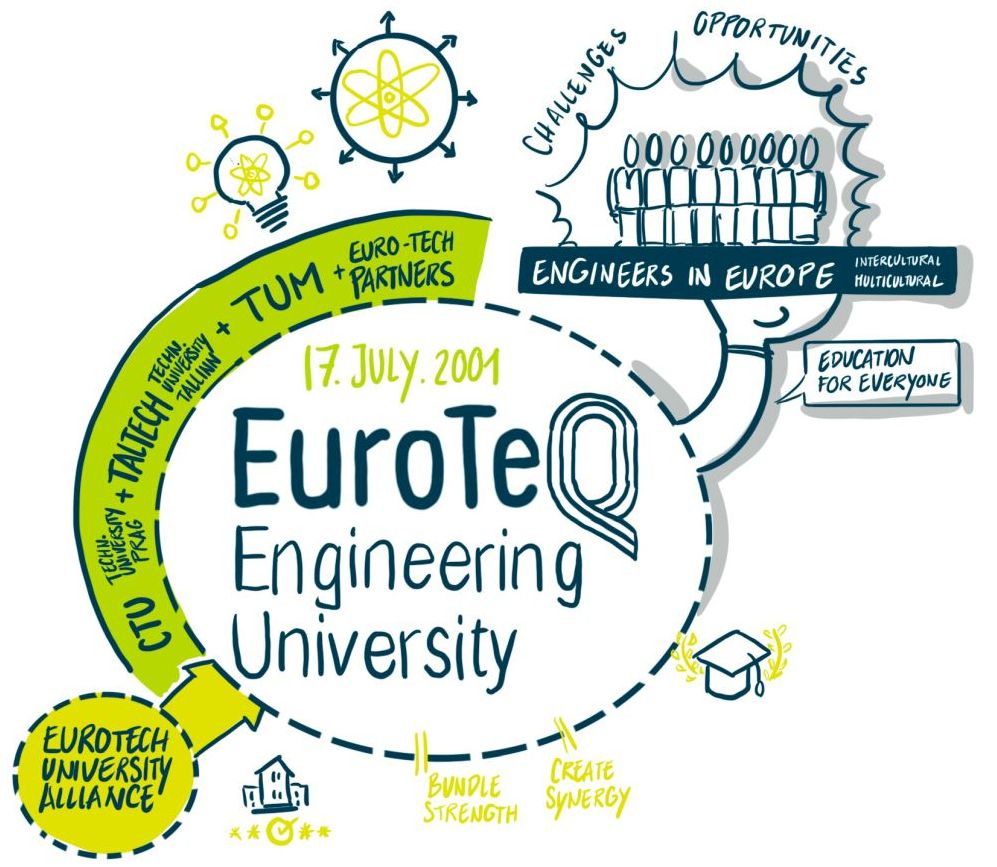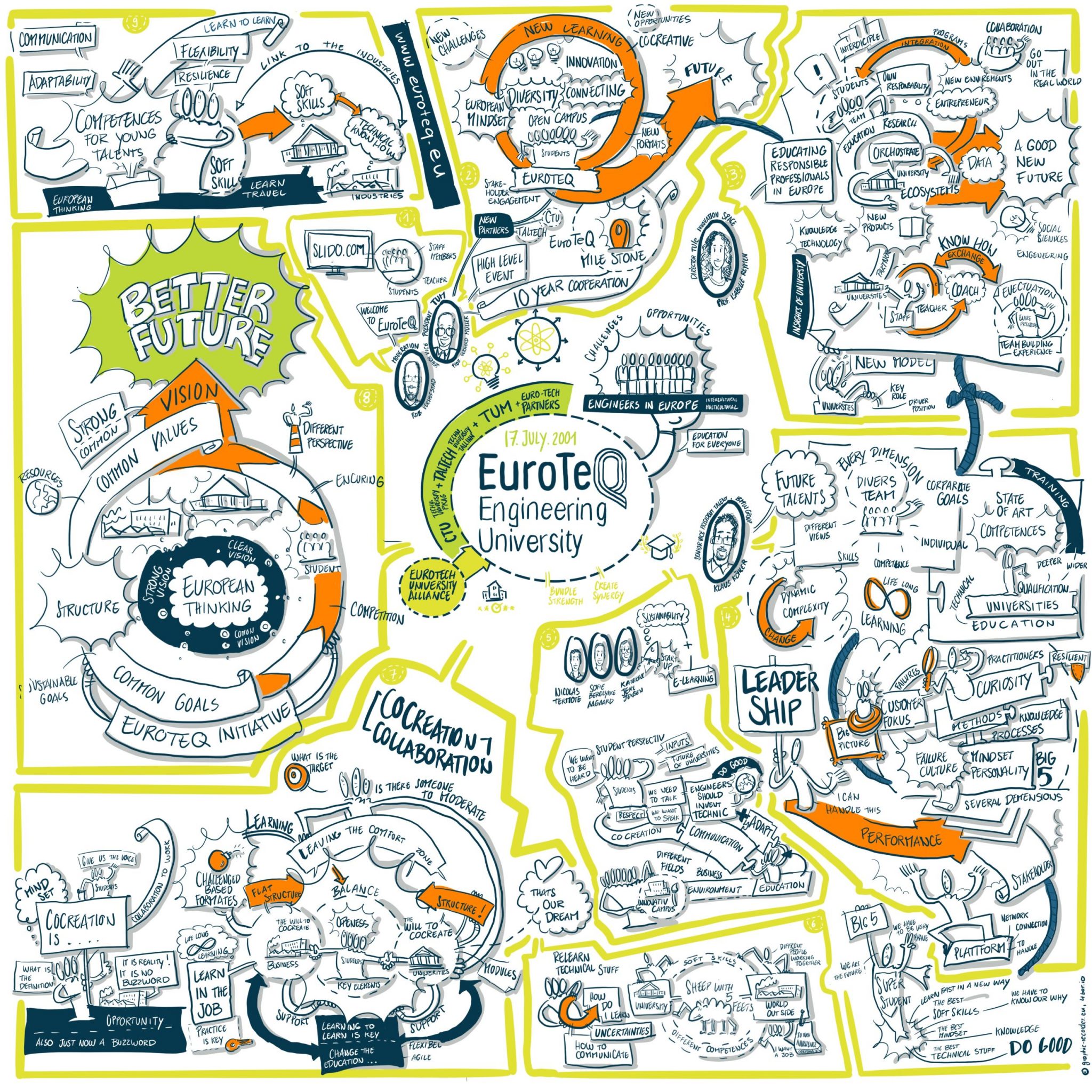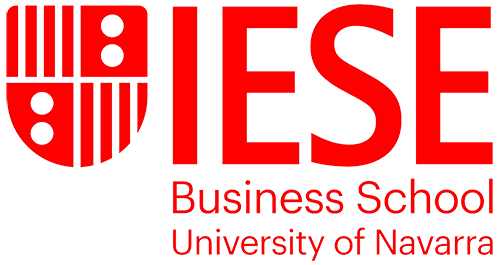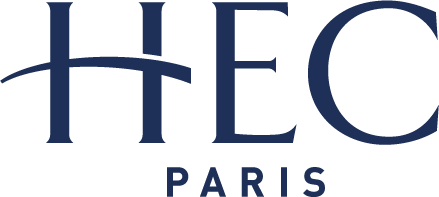Educating responsible professionals in Europe – Co-creation on the virtual stage
Education is key in fostering a future generation that can promote the smart, sustainable and socially acceptable use of new technologies. But how well are today’s study programmes aligned with the needs of the European job market? On July 7, the partners of the EuroTeQ Engineering University hosted a high-level panel to discuss the potential of future engineering education – and the need for a dialogue across stakeholders.
Key Note Speaker
- Prof. Isabelle Reymen, Scientific Director of TU/e innovation Space at Eindhoven University of Technology
- Klaus Köhler, Senior Vice President Talent, Transformation Management BMW Group
Joined on panel by
- Nicolas Termote, Student of Microengineering at École Polytechnique Fédérale de Lausanne, member of the EuroTeQ Student Council
- Sofie Berglykke Aagaard & Kathrine Jerl Jensen, Founders of Incept Sustainability, a Danish e-learning and analytics Start-Up
Key Takeaways
Industry & universities as platforms for lifelong learning
We live in a world changed by technology in a tremendous speed. Not only the emergence of social challenges is accelerated, but also the half-life of knowledge. In the future, it will be even less possible to train competencies on stock. Students need to learn how to be self-directed learners and quickly adapt to new technological developments and unforeseen events in their future careers.
Industry and universities must prepare themselves and create life-long learning opportunities. Therefore, it is a recommendable strategy for industry to make sure that further professional and personal development will be fostered and that there will be a focus on enabling professionals to create impact.
The spirit of change: Real-world challenges & impact-orientation as success factors in teaching
Students have a strong willingness to change the world and make it a better place. When real challenges from the non-academic world are incorporated into teaching, students are highly motivated and acquire deeper competences. Courses that take the challenge-based learning approach are often very popular and get good evaluations. Professionals in industry also show a high willingness to generate impact. This spirit of change is taken up by EuroTeQ Engineering University, which is promoting challenge-based learning and enables its students and professionals to work on real challenges of society.
The co-creation mindset: How a co-creation process becomes successful
Co-creation requires a strong openness to the perspectives, viewpoints and approaches of all participants. In order to work together successfully, it is sometimes necessary to leave one’s own comfort zone and start to the unknown. Hierarchies are dissolved and students and professionals meet at eye level. This form of collaboration requires new structures and forms of moderation and decision-making. This co-creation mindset might be more crucial than technical support. Teams also need a shared set of values and a strong joint vision. This is also the way to overcome challenges in collaboration. Furthermore, resources for the co-creation projects have to be provided on an ongoing basis, supporters have to be identified and structures have to be created. The EuroTeQ project will do just that.
Going beyond excellent technical education
Excellent sound technical education of students is and remains the most important responsibility for universities. Beyond that, it is also indispensable to focus more on overarching competencies and soft skills. Accordingly, both in-depth technical competencies and overarching, wider competencies must be developed to enable students and professionals to put their well-considered and technically sound ideas into practice. To this end, students must be given opportunities to develop holistically. Co-creation with bride variety of partners is one way to educating European students with a broader view.
Structural changes needed to educate responsible engineers
Universities have to take their central role in innovation ecosystems and need to be open to structural changes. Students and lecturers need to be able to collaborate with multiple stakeholders, deal with uncertainty and think at system level. University campuses have always been a vividly, inspiring and creative place. To develop them even further, EuroTeQ takes a flexible approach that allows students to choose innovative learning formats from different EuroTeQ universities according to their needs and to interact with stakeholders from industry and their counterparts as well as lecturers from other countries.











